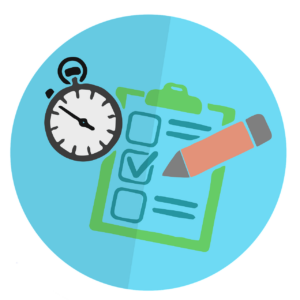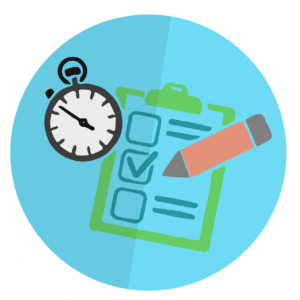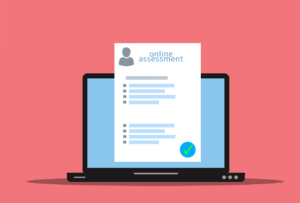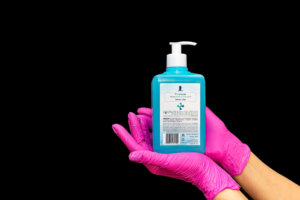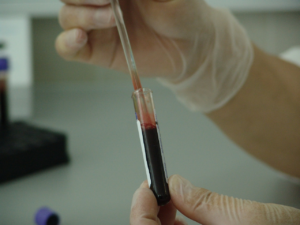Are you getting ready to take the NCLEX exam? You may be wondering if it’s going to be difficult or not. Well, the truth is, the NCLEX exam is not an easy test.
It’s designed to measure your knowledge and skills as a nurse, and passing it is essential to obtain your nursing license. But don’t worry, with the right preparation and mindset, you can ace the NCLEX exam.
In this article, we’ll provide you with insights and tips for success, so you can feel confident and ready on exam day. From what to expect on the exam to developing a study plan and managing test anxiety, we’ve got you covered.
So, let’s dive in and get you on your way to passing the NCLEX exam!
Key Takeaways
- Proper preparation and test-taking strategies are necessary for success on the NCLEX exam.
- The exam focuses on pharmacology, patient care, nursing procedures, and medical terminology.
- Study resources like review books, online courses, study groups, and practice exams can be helpful for preparing for the exam.
- Managing test anxiety through relaxation techniques, challenging negative self-talk, and seeking support is important for success on the exam.
What to Expect on the NCLEX Exam
Get ready to face the ultimate test of your nursing knowledge and skills – the NCLEX exam is no joke. As a nursing student, you’ve probably heard plenty of stories about how difficult the NCLEX can be.
But what exactly should you expect on the exam?
The NCLEX exam format is designed to test your ability to apply nursing concepts and knowledge to real-life situations. The questions on the exam are mostly multiple-choice, but there are also some alternate format questions such as fill-in-the-blank, drag and drop, and hot spot questions.
The exam is computerized and adaptive, meaning that it adjusts to your ability level and presents questions of varying difficulty. To succeed on the NCLEX, you’ll need to be well-prepared and have solid NCLEX test taking strategies in place.
Preparing for the Exam
You’ll want to start by creating a study schedule and sticking to it, so that you are consistently reviewing all the material you need to know for the test. This is especially important because the NCLEX exam covers a lot of ground, and you’ll need to be familiar with a wide range of topics in order to perform well. Some of the key areas you’ll want to focus on include pharmacology, patient care, nursing procedures, and medical terminology.
To help you stay on track, consider using a study resource like a review book or online course. These can provide you with additional guidance and practice materials, which can be incredibly helpful as you prepare for the exam. Additionally, make sure you are managing your time effectively by breaking down your study sessions into manageable chunks and taking regular breaks to avoid burnout. With a little bit of dedication and hard work, you can feel confident and prepared when exam day rolls around.
| Study Resources | Time Management |
|---|---|
| Review books | Break study sessions into manageable chunks |
| Online courses | Take regular breaks to avoid burnout |
| Study groups | Prioritize studying over non-essential activities |
| Practice exams | Create a study schedule and stick to it |
Developing a Study Plan
Developing a solid study plan is crucial for any nursing student looking to ace their licensing test. One of the key components of a good study plan is time management. You’ll need to set aside dedicated blocks of time each day to study, but also make sure to schedule breaks and time for relaxation. It’s important to avoid burnout and maintain your mental and emotional health during the studying process.
Another important aspect of your study plan is the materials you use. Make sure you’re utilizing high-quality study materials that are relevant to the content on the NCLEX exam. This may include textbooks, review courses, practice exams, and flashcards. Don’t be afraid to try out different materials until you find what works best for you.
Remember to also stay organized and keep track of your progress throughout your studying journey. With a solid study plan in place, you’ll be well on your way to success on the NCLEX exam.
Managing Test Anxiety
Managing test anxiety can be a real challenge for many nursing students, but there are some effective strategies that can help. It’s normal to feel nervous or stressed before a big exam, but excessive anxiety can interfere with your ability to concentrate and recall important information.
Here are some tips to help you manage your test anxiety:
-
Practice relaxation techniques: Deep breathing, meditation, and progressive muscle relaxation are all effective ways to calm your mind and body. Find a technique that works for you and practice it regularly, even when you’re not feeling anxious.
-
Challenge negative self-talk: If you find yourself thinking things like "I’m going to fail"or "I’m not smart enough,"try to replace these thoughts with more positive and realistic ones. For example, remind yourself of times when you’ve succeeded in the past or focus on the progress you’ve made in your studies.
-
Get enough sleep: Lack of sleep can make anxiety worse and interfere with your ability to focus. Aim for 7-8 hours of sleep per night, and establish a regular sleep routine to help you wind down before bed.
-
Exercise regularly: Exercise is a natural stress reliever and can help improve your mood and energy levels. Even a short walk or yoga session can make a big difference.
-
Seek support: Talk to friends, family members, or a counselor about your anxiety. Sometimes just talking about your feelings can help you feel more calm and confident.
Remember, everyone experiences test anxiety to some degree, and it’s okay to feel nervous. By practicing relaxation techniques, challenging negative self-talk, and taking care of your physical and emotional health, you can reduce your anxiety and improve your chances of success on the NCLEX exam.
Exam Day Strategies
On the day of your nursing exam, it’s important to arrive early and come prepared with all necessary materials to ensure a smooth testing experience. You don’t want to add any extra stress to your day by rushing or forgetting important items.
Once you’re settled in, time management is key. Use the time given to you wisely, and don’t spend too much time stuck on any one question. If you’re unsure about an answer, make an educated guess and come back to it later if you have time.
It’s also important to incorporate relaxation techniques throughout the exam. Take deep breaths, stretch your arms and legs, and close your eyes for a few seconds to clear your mind. Don’t let anxiety take over and cause you to panic during the exam.
Remember that you’ve put in the hard work and preparation, and now it’s time to show what you know. Stay confident and focused, and trust that you’ll do your best on the NCLEX exam.
What to Do After the Exam
Now that you’ve completed the NCLEX exam, it’s important to understand your results. Take the time to review your scores and identify areas where you excelled and areas where you could improve.
Don’t forget to celebrate your accomplishments! Passing the NCLEX is a major achievement and you should be proud of yourself.
Finally, start preparing for the next steps in your nursing career. Whether it’s applying for jobs or continuing your education, there are many exciting opportunities ahead for you.
Understanding Your Results
Realizing how you performed on the NCLEX can be a nerve-wracking experience, but understanding your results is crucial for future success.
After taking the exam, you’ll receive your NCLEX Exam Results within 48 hours. These results will include your pass or fail status, as well as a detailed report of your performance in each of the four categories: Safe and Effective Care Environment, Health Promotion and Maintenance, Psychosocial Integrity, and Physiological Integrity.
Interpreting scores can be confusing, but it’s important to understand what they mean. The NCLEX uses a computerized adaptive testing (CAT) system, which means that the difficulty of the questions you receive will be based on your previous answers.
This system is designed to determine your level of competency and ensure that you meet the minimum requirements to become a licensed nurse. If you pass the exam, congratulations! You’ve met the minimum requirements and are now eligible to apply for licensure.
If you didn’t pass, don’t be discouraged. Use your results to identify areas where you need improvement and create a plan to study and retake the exam.
Remember, the NCLEX is a challenging exam, but with dedication and hard work, you can succeed.
Celebrating Your Accomplishments
After passing the NCLEX, it’s time to celebrate your amazing accomplishment! You’ve put in countless hours of studying and preparation, and now you’ve successfully completed one of the biggest hurdles in your nursing career.
Take a moment to reflect on all of the hard work and dedication you’ve put into this accomplishment. Allow yourself to feel a sense of gratitude for the support and resources that have helped you along the way.
Self-care is crucial during this time of celebration. Make sure to take time for yourself and reward yourself for your hard work. This can be anything from treating yourself to a day at the spa or indulging in your favorite meal.
Remember to also take care of your mental health by practicing self-care activities such as meditation, yoga, or spending time with loved ones. Celebrating your accomplishments is an important part of your journey, and it’s a time to reflect on your growth and hard work.
So, take a moment to celebrate yourself and all that you’ve accomplished.
Preparing for Next Steps in Your Nursing Career
As you’re basking in the glory of your recent achievement, it’s important to start looking ahead and preparing for the next steps in your nursing career.
One way to do this is by utilizing online resources. There are plenty of websites and forums that offer valuable information on career advancement, continuing education opportunities, and job openings. Take advantage of these resources to stay updated on industry trends and to gain insight into different career paths within the nursing field.
Another crucial aspect of advancing your nursing career is networking. Attend conferences, seminars, and other events to meet other professionals in the field. You never know when a connection can lead to a new job opportunity or a chance to collaborate on a project.
Additionally, consider joining professional organizations such as the American Nurses Association or the National Association of Pediatric Nurse Practitioners. These organizations provide networking opportunities, as well as resources for continuing education and career advancement.
By utilizing online resources and networking opportunities, you can take proactive steps towards achieving your career goals in the nursing field.
Frequently Asked Questions
How long does it take to receive NCLEX exam results?
Once you’ve taken the NCLEX exam, you’ll likely be eager to receive your results. The good news is that you won’t have to wait too long.
Most candidates receive their NCLEX exam results within 48 hours of completing the test. It’s important to note that the validity of your NCLEX exam score is only 2 years, so it’s crucial to receive your results as soon as possible.
Quick communication of your results is also important for job applications and licensure requirements. If you haven’t received your results within a few days, don’t hesitate to contact your state board of nursing for an update.
Can you retake the NCLEX exam if you fail?
Yes, you can retake the NCLEX exam if you fail. However, there are some costs associated with retaking the exam, such as the exam fee and any additional study materials or resources you may need to use to prepare for the retake.
The cost of the exam fee varies depending on the state in which you are applying for licensure. It’s important to keep in mind that while retaking the exam may seem daunting, it is possible to pass with additional preparation and study.
Don’t give up if you fail the first time, and consider seeking out additional resources or support to help you succeed on your next attempt.
What is the passing score for the NCLEX exam?
To pass the NCLEX exam, you need to meet the NCLEX score requirements. The passing score for the NCLEX exam is determined by the National Council of State Boards of Nursing (NCSBN). The NCSBN uses a computerized adaptive testing (CAT) system to determine your score. This means that the difficulty of the questions you receive will vary based on your previous answers.
The minimum number of questions you need to answer is 75, and the maximum is 265. The passing score for the NCLEX exam is different for every state, but it usually falls between 75 and 130. To ensure that you meet the NCLEX passing score, you need to prepare well and study hard.
Are there any accommodations available for test-takers with disabilities?
If you have a disability that requires accommodations, there are options available for you when taking the NCLEX exam. The National Council of State Boards of Nursing (NCSBN) offers disability support services to ensure that all test-takers have equal opportunities to succeed.
Accommodation options include extended testing time, extra breaks, a separate testing room, and specialized equipment. To request accommodations, you’ll need to submit documentation of your disability and a request form to the NCSBN. It’s important to note that accommodation requests take time to process, so it’s best to submit your request as soon as possible.
By taking advantage of these support services, you can feel more confident and comfortable when taking the NCLEX exam.
How often is the NCLEX exam updated or revised?
The NCLEX exam is regularly updated to ensure that the content and questions are relevant and up-to-date. This is important to ensure that the exam accurately reflects the current practice of nursing and the knowledge required to be a safe and competent nurse.
The frequency of NCLEX exam revisions varies, but typically occurs every three years. This allows for the incorporation of new research, technology, and changes in healthcare policies and practices. The content updates can include changes in test format, test plan changes, and changes in the types of questions being asked.
It’s important to stay current with these updates to ensure that you’re properly prepared for the exam.
Conclusion
In conclusion, you can expect the NCLEX exam to be challenging, but with proper preparation and a solid study plan, you can succeed. Remember to focus on the content areas that you struggle with the most and utilize resources such as review courses, practice exams, and study groups. Don’t forget to take care of yourself and manage your test anxiety to stay focused on exam day.
When it comes to the NCLEX exam, there’s no one-size-fits-all approach to success. It’s important to find what works best for you and stick to it. And after the exam, don’t forget to take time to reflect on your performance and identify areas for improvement to help you continue to grow as a nurse.
With determination, hard work, and the right strategies, you can pass the NCLEX exam and embark on an exciting career in nursing.































